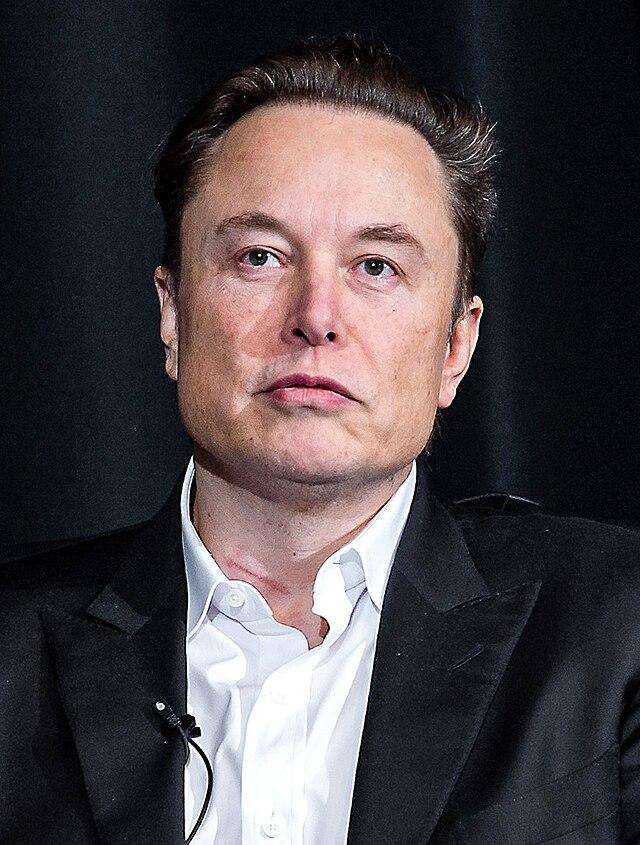Elon Musk’s recent announcement to relocate X, formerly known as Twitter, from San Francisco to a new base has ignited a wave of controversy and mixed reactions across the tech community and public alike. The decision, seen by some as a strategic move aimed at operational efficiency and cost reduction, has nonetheless been met with accusations of betrayal by long-time San Francisco supporters who view the city as the heart of innovation and progress. As this corporate shift unfolds, the heated debate highlights broader concerns over the changing landscape of Silicon Valley and the future of urban tech hubs.
Elon Musk’s Relocation of X Sparks Controversy Among San Francisco Tech Community
Elon Musk’s recent announcement to relocate X, formerly Twitter, from San Francisco to an undisclosed location has sent shockwaves through the local tech ecosystem. Many industry insiders see this move as a significant blow to the city‚Äôs reputation as a premier innovation hub. San Francisco‚Äôs tech community expressed feelings ranging from betrayal to uncertainty, highlighting the delicate balance between corporate strategy and community impact. One prominent startup founder labeled the decision a ‚Äústab in the back,‚Äù emphasizing how deeply it disrupts ongoing collaborations and talent retention efforts.
- Economic concerns: Potential loss of thousands of high-paying jobs.
- Community impact: Reduced opportunities for local partnerships and mentorship.
- Real estate market: Possible decline in demand for commercial office space.
Supporters of the move argue that it reflects a necessary business adjustment to evolving market dynamics and a shift towards a more decentralized workforce. They assert the decision could offer flexibility and encourage innovation in new environments. A comparative look at other tech giants that embraced relocation or remote-first strategies provides insight:
| Company | Move Year | New Location | Impact |
|---|---|---|---|
| 2021 | Austin | Expanded talent pool, cost savings | |
| 2023 | Remote-first | Increased employee satisfaction | |
| Salesforce | 2022 | Hybrid San Francisco + Remote | Balanced community ties, flexibility |
Economic Implications of Moving X to Texas and Its Impact on Local Innovation
The relocation of X to Texas is reshaping the economic landscape for both the company and the regions involved. Texas promises substantial financial incentives, including lower corporate taxes and reduced operational costs, positioning itself as an attractive haven for tech giants seeking relief from California‚Äôs escalating expenses. This strategic move is anticipated to bolster X’s bottom line, allowing for reinvestment into research and development initiatives. However, San Francisco faces the immediate consequence of losing not just jobs, but a critical player in its innovation ecosystem. The city‚Äôs vibrant startup culture risks being diluted as talent and capital migrate, potentially slowing its pace as a global tech incubator.
- Texas: Lower taxes, cheaper real estate, and business-friendly regulations.
- San Francisco: Higher living costs, diminished tech presence, and possible talent drain.
| Economic Indicator | San Francisco | Texas |
|---|---|---|
| Corporate Tax Rate | 8.84% | 0-1% |
| Commercial Office Rent | $75/sq ft | $30/sq ft |
| Average Salary (Tech) | $140,000 | $110,000 |
The impact on local innovation ecosystems is more nuanced. San Francisco’s departure of a major tech player like X could disrupt regional collaborations, mentorship opportunities, and knowledge sharing that fuel startups and emerging technologies. Conversely, Texas could see an invigorated tech sector, gaining access to fresh expertise and resources brought by X’s move. The real challenge lies in maintaining innovation momentum amidst shifting geographic priorities, as community leaders and policymakers in both areas grapple to either retain or attract cutting-edge entrepreneurial activity.
Community Reactions Reveal Deep Divides on Tech Industry Loyalty
Reactions among the tech community and local residents highlight a pronounced rift in loyalties and expectations following Elon Musk’s announcement to relocate X from San Francisco. While some see the move as a necessary evolution to foster growth and innovation in a more business-friendly environment, others feel a sense of betrayal ‚Äî viewing it as a blow to San Francisco’s status as a tech hub. Social media conversations reveal a spectrum of opinions, with supporters praising the potential for new opportunities, and critics lamenting the loss of jobs and a diminishing sense of community pride.
Key sentiments expressed by the community include:
- Optimism: Advocates argue this shift could lead to a revitalization of the platform, unlocking fresh talent and cutting-edge partnerships.
- Loyalty Concern: Many San Francisco employees and residents feel abandoned after years of contributing to X’s cultural and technological identity.
- Economic Impact Fears: Local business owners worry about reduced foot traffic and the ripple effects on the city’s tech ecosystem.
| Community Group | Primary Reaction | Top Concern |
|---|---|---|
| Tech Employees | Mixed – uncertainty about relocation | Job security and commute changes |
| Local Businesses | Disappointment | Customer decline |
| Industry Analysts | Supportive of strategic move | Market positioning |
| Civic Leaders | Concerned but hopeful | Economic repercussions |
Recommendations for Mitigating Talent Drain and Strengthening Regional Tech Ecosystems
To counteract the talent drain sparked by high-profile relocations like Elon Musk’s move of X from San Francisco, local governments and industry leaders must prioritize robust investment in talent retention programs. This includes creating incentives for startups and established tech companies to anchor their operations locally, such as tax breaks, affordable office spaces, and enhanced access to venture capital. Additionally, fostering partnerships between universities and tech firms can build a continuous pipeline of homegrown talent, minimizing the lure of out-of-region opportunities.
Beyond financial incentives, fostering a supportive environment that values innovation and quality of life is paramount. This can be achieved through initiatives like:
- Expanding affordable housing projects tailored for tech workers to reduce living cost pressures.
- Enhancing public transit and infrastructure to improve daily commutes and connectivity.
- Hosting tech-focused events and accelerators that create a sense of community and collaboration.
| Strategy | Short-Term Impact | Long-Term Outcome |
|---|---|---|
| Tax Incentives for Startups | Attracts new businesses | Sustained economic growth |
| University-Industry Partnerships | Boosts skill alignment | Strengthens workforce pipeline |
| Affordable Housing Development | Improves employee retention | Enhances community stability |
Future Outlook
As Elon Musk’s decision to relocate X from San Francisco to Texas unfolds, the move continues to evoke a spectrum of reactions—ranging from feelings of betrayal among longtime Bay Area supporters to cautious optimism among those welcoming new opportunities. This development not only highlights the shifting dynamics in the tech industry’s geographic landscape but also underscores the broader implications for regional economies and communities tied to Silicon Valley’s identity. The full impact of this transition will likely reveal itself in the months and years ahead, as stakeholders on both sides grapple with the consequences of what many are calling a pivotal moment in the tech world’s ongoing evolution.




